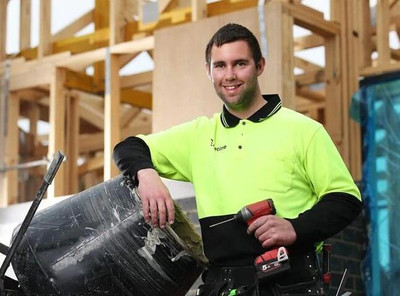Pre-learning awareness (RPL) is the process of comparing individual prior learning gained through work, life experience, personal learning, and education. Unless experience brings knowledge and skills, credit is given for learning gained, not experience. Students applying for merit must demonstrate that they have learned through one of the following types of learning:
- Recognition of Prior Learning takes place through everyday life experiences and situations. This type can be confirmed by portfolio collection.
- This can be achieved through courses, external programs, on-the-job training, clubs and local organizations.
Rpl Sydney allows individuals to test their priorities by submitting a portfolio application.
- Sample composition
- Elements created through chapter projects
- Teacher comments and eligible assignments
- Proof of participation in seminars or workshops (including programs)
- Proof of voluntary work, internship and paid experience
- Obtained a license or certificate
- Skills Certified also qualified for Scholarships
- Reports on topics of particular interest
- Overview of the class presentation and handouts
- Link impression of the created web page

Pre-Learning Recognition (RPL) Procedure
Once the evaluation application is completed, the applicant must pay an evaluation fee. These fees are non-refundable.
Next, the applicant must submit a portfolio containing detailed documentation illustrating the learning gained through work and life experience. It must demonstrate equivalence with learning outcomes relevant to higher education.
The process starts as follows:
- Portfolio review of advisory board and ARP
- Applicants interviewed by the Advisory Board and ARP
- The supervisor meets with the supervisor to determine the course recognition points (non-equivalent points, if any).
- If the course is approved, the supervisor will update the student's journal and issue a statement of the Rpl Sydney points awarded.
The committee's decision is considered final, but if the applicant submits a complaint in special circumstances, the committee meets and processes the complaint. RPL services are provided by:
- Facilitator: the recorder
- Advisor: The Access and Registration Office
- Evaluator: admissions, ARP committee, full-time faculty in areas where individuals apply for pre-approval for studies
- Facilitator: responsible for implementation, facilitation and monitoring of activities and procedures.
- Counsellor - Provides information about the process and opportunities provides guidance to students throughout the process and is in contact with facilitators and counsellors.
- Evaluators - To be completed by an evaluator who completes the evaluation and makes decisions to award credit as needed, the ARP Committee (full-time staff in a specific area, if necessary, to support the evaluation). ARP will be notified if the student Get Qualified for the final assessment.
The number of points awarded through the RPL process must not exceed 18 points. Students who receive RPL transfer credits are not eligible to receive additional transfer credits by other methods, such as college exams or university transfers.
Credits awarded for a degree from University will appear on the official transcript as a "mass transfer" or rarely as a direct credit, depending on the portfolio's rating. Courses with transfer points will be included in the official transcript with special notation. Device conversion rates are not used to calculate GPA.
Comments
Post a Comment